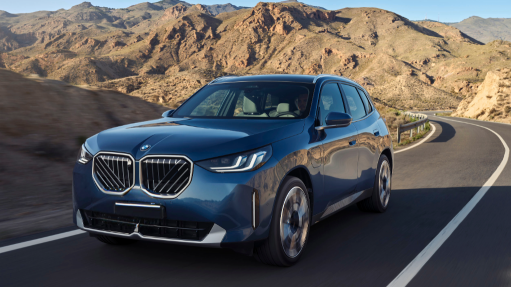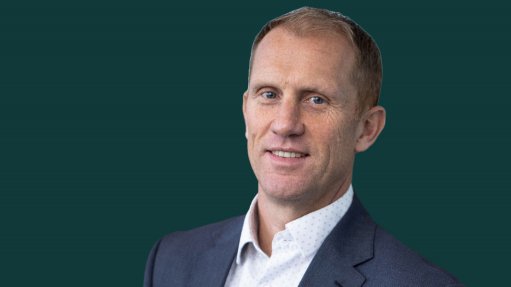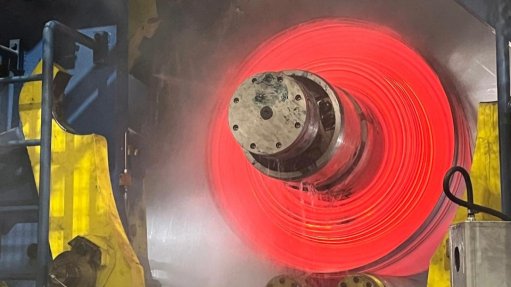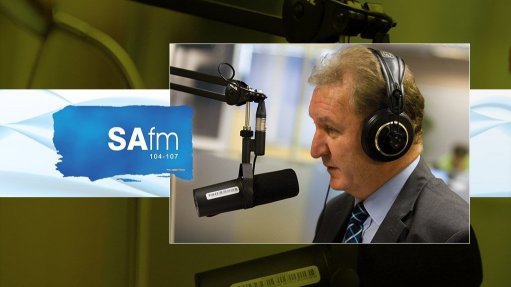Climate challenge harder than it seems, JP Morgan executive warns
The world isn’t cutting carbon emissions anywhere near quickly enough, a senior executive at JP Morgan Asset Management told clients this week – and changing that will require far harder choices than most people realise.
In his annual 'Energy Outlook' report, Michael Cembalest, chairperson of market investment and strategy for the asset management group, wrote that the US needs to reduce its use of carbon much faster – a view he shares with the authors of the Green New Deal, including first-term Democratic Representative Alexandria Ocasio-Cortez of New York.
Yet Cembalest says the advocates of that plan have downplayed the difficulty of achieving their goals. The Green New Deal’s objective of reaching zero net greenhouse gas emissions in the US by 2030, he writes, is “not in the realm of the possible.”
“People are not getting the full picture about what’s feasible,” Cembalest said in a phone interview Tuesday. “I think more sacrifices are going to be needed than people still understand.”
In his report, “Mountains and Molehills,” which was released on Monday, Cembalest starts by pointing out that even if the world succeeded at generating all its electricity from zero-emissions sources, such as renewable energy or nuclear power, electricity makes up less than one-third of fossil fuel consumption.
Much harder, Cembalest argues, will be cutting fossil fuels out of industrial production, such as cement, steel, ammonia and plastics. Those factories are typically powered directly by burning coal or other fossil fuels, which can generate greater heat and pressure.
“Some on the right are accused of being ‘intellectually bankrupt’ on climate issues, and I do see evidence of that,” he says in the report. “But being intellectually dishonest about the viability of the Green New Deal does no one any favors. At best, it’s a slogan to galvanize support for change; at worst, it’s a sign of how little work its proponents have done.”
“For Green New Deal advocates: decarbonising industrial energy use is more easily said than done,” Cembalest writes.
Cembalest then considers some of the nascent technologies that have attracted the most attention from climate advocates and investors alike, and explains why none are as promising as they might seem.
Planting or replanting trees to pull carbon from the air “are low-tech solutions that can and do work,” but are unlikely to cut total US emissions by more than few percentage points, even if done on a huge scale. Carbon capture and sequestration, cellulosic ethanol, new energy-storage technologies and so-called “carbon-free” aluminum smelting are all similarly overhyped, Cembalest writes.
The message to investors, Cembalest said, is not that cutting emissions is hopeless. Rather, it’s that the US and other countries will need to accept much more sweeping – and likely politically unpopular – changes to reach that goal.
That could include greater use of eminent domain to seize private land for building transmission lines to move wind-generated electricity to population centers, Cembalest said. It could mean higher taxes, including carbon taxes. And it could mean using fewer goods and services.
“Reduced consumption is going to have to be a part of the equation,” Cembalest said.
In the meantime, Cembalest warns that the US needs to divert more of what it spends on climate change toward protecting its coastal cities from extreme weather, on the assumption that emissions won’t fall quickly enough.
The Green New Deal risks hurting the effort to curb climate change, Cembalest said, by making the goals seem impractical.
“Grand ideas are important at times in American history to mobilize support,” Cembalest said. “But if they’re not, in quick succession, followed by a coherent implementation plan of how you’re going to get there, I worry that it’s counterproductive.”
Comments
Press Office
Announcements
What's On
Subscribe to improve your user experience...
Option 1 (equivalent of R125 a month):
Receive a weekly copy of Creamer Media's Engineering News & Mining Weekly magazine
(print copy for those in South Africa and e-magazine for those outside of South Africa)
Receive daily email newsletters
Access to full search results
Access archive of magazine back copies
Access to Projects in Progress
Access to ONE Research Report of your choice in PDF format
Option 2 (equivalent of R375 a month):
All benefits from Option 1
PLUS
Access to Creamer Media's Research Channel Africa for ALL Research Reports, in PDF format, on various industrial and mining sectors
including Electricity; Water; Energy Transition; Hydrogen; Roads, Rail and Ports; Coal; Gold; Platinum; Battery Metals; etc.
Already a subscriber?
Forgotten your password?
Receive weekly copy of Creamer Media's Engineering News & Mining Weekly magazine (print copy for those in South Africa and e-magazine for those outside of South Africa)
➕
Recieve daily email newsletters
➕
Access to full search results
➕
Access archive of magazine back copies
➕
Access to Projects in Progress
➕
Access to ONE Research Report of your choice in PDF format
RESEARCH CHANNEL AFRICA
R4500 (equivalent of R375 a month)
SUBSCRIBEAll benefits from Option 1
➕
Access to Creamer Media's Research Channel Africa for ALL Research Reports on various industrial and mining sectors, in PDF format, including on:
Electricity
➕
Water
➕
Energy Transition
➕
Hydrogen
➕
Roads, Rail and Ports
➕
Coal
➕
Gold
➕
Platinum
➕
Battery Metals
➕
etc.
Receive all benefits from Option 1 or Option 2 delivered to numerous people at your company
➕
Multiple User names and Passwords for simultaneous log-ins
➕
Intranet integration access to all in your organisation

















